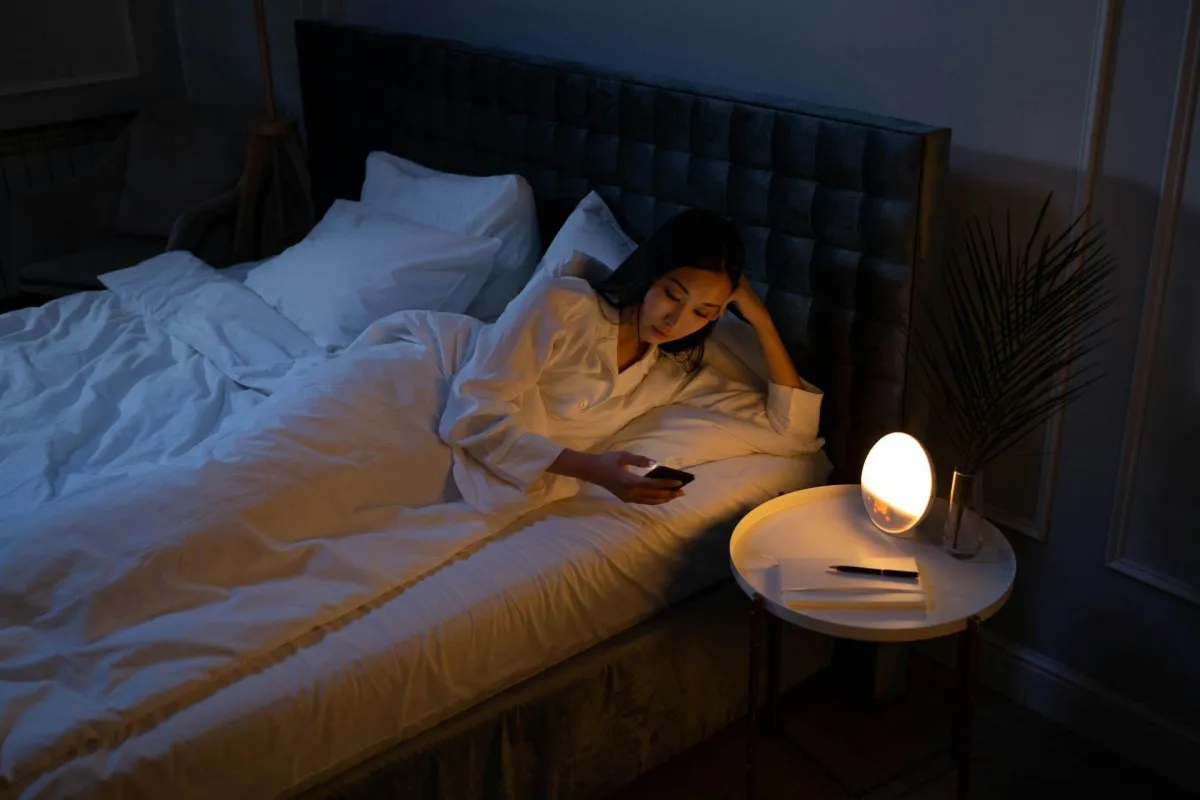
Rethinking Insomnia
My great grandfather never slept a night in his life.
Pretty amazing, when you learn that he lived to 94.
According to my father, every morning his grandfather would enter the breakfast room full of complaints about the disturbances to his sleep; if any of that could be directly or indirectly blamed on an individual, all the better.
That poor old man could hardly enjoy the luxury of his lavish lifestyle, his beloved cats, his shelves full of expensive and ludicrous tchotchkes, his decades of world travel, his chef-prepared repasts; malevolent forces were always conspiring to destroy his slumber and all the world should pity him in his suffering.
Or, perhaps, he was making a choice to create his own misery, and share it. Since you can’t live for 94 years without sleep, maybe, just maybe, he wasn’t Mr. Brightside.
Could there be an alternative?
We will die without sleep; we will go crazy. We need to sleep.
Is it true?
Matthew Walker wrote a book a few years ago called Why We Sleep, with the intention of communicating the importance of consistent and high-quality sleep for health and longevity. Popular health researcher Andrew Huberman has built his brand around this issue. From a physiological standpoint, we need to sleep.
But here’s the thing. If it were really true that we all needed a magic amount of sleep, without which we would see progressive declines in health, then mothers and almost anyone who survived until adulthood would be permanently screwed.
If you are already doing all the “hacks” for sleeping well, then the sleep gurus start to sound like witch doctors hurling curses. Yeah, yeah, I GET it, I SHOULD be asleep, but I’m wide awake at 3am, so, now, not only am I stressed because I want to be asleep but am awake, but I’m GOING TO DIE!!!
Or not.
One long night when I found myself staring at the inside of my eyelids from midnight until 4:30 in the morning, I began to explore the story behind the feeling of anxiety and frustration about being awake. How much of my agony was a creation of my mind?
But but but! I can already hear you saying, we NEED sleep. We’ll die without it!
And I agree with that. But you’re not dead. So what’s going on
I began to inquire.
I should be asleep right now.
Is it true?
No. I know it is not true. I know I can’t fight reality. I know I cannot answer, with absolute certainty, that it is true.
And if I believe it is true, what happens?
I am anxious. I am fearful. I am pulled into a dysfunction and pain that may not ever come to pass. I become like my great grandfather, believing I am the victim of a cosmic injustice, perseverating on that perception, and transmitting it out to the world. I fill the future with failure:
I need to be asleep right now because otherwise I will be tired tomorrow.
If I’m tired tomorrow, I won’t function well.
If I’m not sleeping, I will have ongoing health issues.
If I’m not sleeping, there’s something wrong with me.
If I’m not sleeping, I’m a failure as a health practitioner and a person.
And on and on.
And yet, I’m alive; I’m breathing.
What if nothing is being stolen from me, but, instead, I am receiving a gift?
Without the thought that I should be asleep, I attend to what is present, I am curious and open, I follow my sensations and honor them; if I am wide awake, I do waking things, and if I am tired, I step away and lie down. I learn to be honest about the messages within, and get increasingly clear on my priorities.
What other story could be true?
Perhaps I should be awake at night. In these hours I focus inward, reading and re-reading the meditative works of the Taoist, Buddhist, Christian sages, mining their peace for the pathway to my own. It is at these times that I find myself, in moments of agony, broken open with joy and relief at the possibilities for freedom. I get up and write in longhand, by candlelight, or have a cup of tea.
It is my thoughts, the persistent, nattery ones, that should be at rest. I can watch them, drifting and swirling like small boats in a great stream; I can climb aboard and lie awake in as if in a dream, enjoying, the sensation of gentle eddies and tumultuous cataracts.
The day is yang space; the night is yin. We need a balance of both. When we neglect the inner healing that is trying to occur, it will demand its due. My tendency all day is to go harder, to do more, to fill up the space with proof of my worth; if I don’t create the space during the daylight hours for contemplation, forgiveness, and surrender, the dark chaos will find me in the night and insist on my attention.
In the waking night spaces, I find the opportunity to explore the darker riches of what it is I’m doing here. How am I moving in the world, and why? What is my motivation, what is my purpose?
When I let go of the war on what is happening, and embrace the opportunities, a curious thing happens:
The more I love the darkness, the more easily I sleep.
Can homeopathy heal insomnia? Yes. But insomnia isn’t one thing, like an injury or an acute illness. It is a pattern of susceptibility that gets triggered when there is healing trying to occur, and it is often the place where we are, literally, being woken up to what needs to change.
We can suppress it as a symptom for a time, but if we’re living out of sync with ourselves, we won’t get away with it for long. In order to heal insomnia, we work with the remedies and the story, identifying the internal and external changes needed to give the nervous system permission to let go.
There is no dream sweeter.
Click HERE for your FREE Embark on Healing call, if you’d like to learn more about my Navigating Your Healing Journey shamanic coaching program of homeopathy-driven healing, growth, and self-discovery, and how you can gain greater access to your intuition and true path. I am offering you the Irresistible Invitation to Surrender. Will you accept it?

